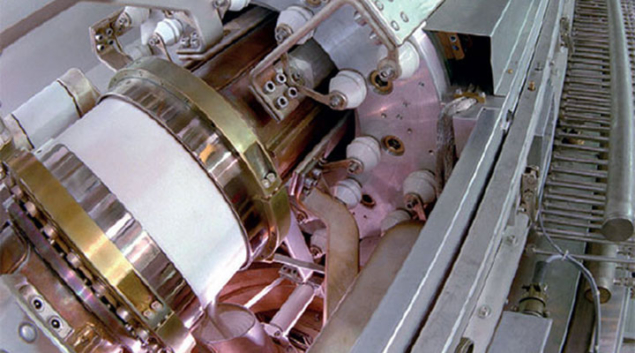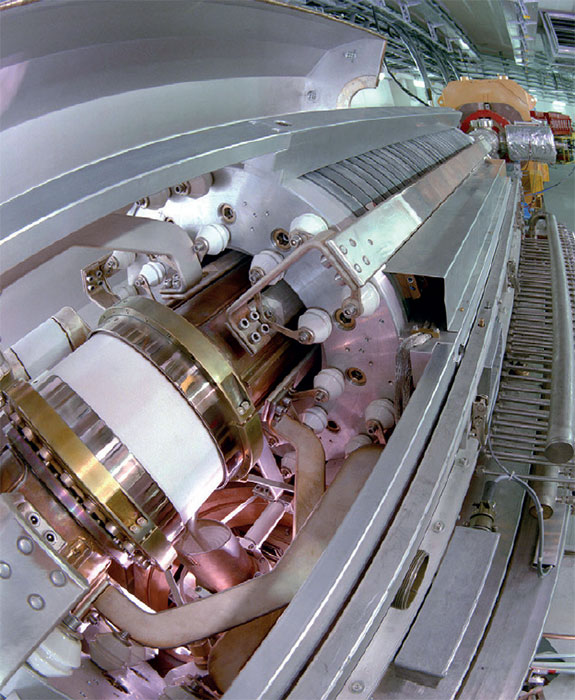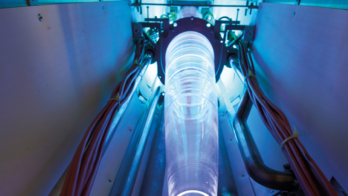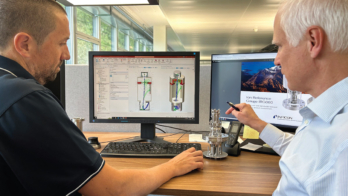

Image credit: A Zschau/GSI.
Researchers at the GSI Helmholtz Center for Heavy Ion Research in Darmstadt, Germany, have demonstrated the feasibility of using carbon ions to treat cardiac arrhythmia, in which abnormal electrical patterns can lead to sudden heart failure or permanent damage as a result of stroke. Conventional treatments for certain forms of cardiac arrhythmia include drugs or “catheter ablation,” in which catheters are guided through blood vessels to the heart to destroy certain tissue. The GSI team, in conjunction with physicians from Heidelberg University and the Mayo Clinic in the US, have now shown that high-energy carbon ions produced by a particle accelerator can in principle be used to perform such treatments without catheters.
The non-invasive procedure induces specific changes to cardiac tissue that prevent the transmission of electrical signals, permanently interrupting the propagation of disruptive impulses. Following promising results from initial tests on cardiac cell cultures and beating-heart preparations, the researchers developed an animal study. Further detailed studies are needed, however, before the method can start to benefit patients.
A crucial advantage of the new method it that the ions can penetrate to any desired depth. Irradiating cardiac tissue with carbon ions appears as a promising, non-invasive alternative to catheters, and ultimately ion-based procedures are expected to take a few minutes compared with a few hours. “It is exciting that the carbon beam could work with surgical precision in particularly sensitive areas of the body,” says Paolo Giubellino, scientific managing director of FAIR and GSI and former spokesperson of the LHC’s ALICE experiment at CERN. “We’re proud that the first steps toward a new therapy have now been taken.”





